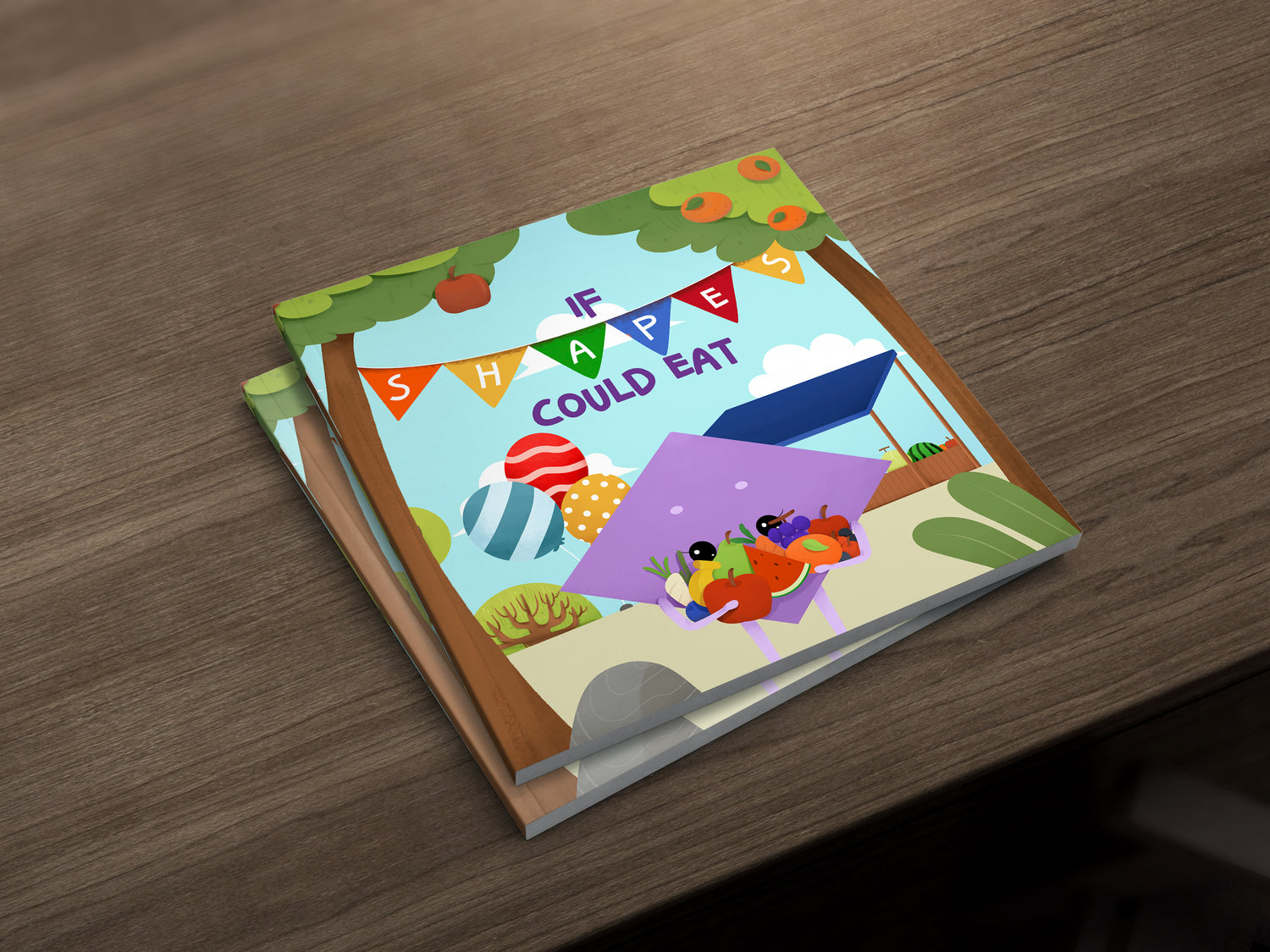One thing with parents and guidance is that sometimes we want to see our little ones express their emotions directly or indirectly to us and those around them.
An interesting thing about our toddlers and little ones expressing themselves to us is that they tend to do it more comfortably when given the right platform and listening ears.
Right platforms? What are they? You may ask; it's not rocket science because just making sure you are creating a judgment-free environment, listening to them actively, responding with empathy, etc., really helps them express their emotions very well.
Going further in this blog post, we'll be going through the various ways to help our little ones express themselves more and do it often.
But first, why should you even encourage kids to express their emotions in the first place?
Why Is It So Important to Let Kids Express Their Emotions?
First, let's be honest: does it matter whether young Jimmy can tell you he's angry or if Susie can explain why she's ecstatic?
When kids learn to open up about their feelings, some significant magic happens; it's not simply about encouraging them to speak for the sake of talking.
Here are some very important reasons you should always encourage them to express their emotions;
We can call it knowing oneself and others. Imagine a little version of yourself that can identify the reasons behind your irritability as well as those of your friends
That's a demonstration of emotional intelligence. It's as if you've given them superpowers to help them deal with the highs and lows of life and friendships, which you don't often see from children most times.
Encouraging young ones to express their emotions helps develop both their verbal and nonverbal communication skills.
You can think of how annoying it is when someone doesn't understand your feelings. Children experience it as well.
Picture yourself as a little person finding your way around many emotions, such as exhilaration and irritation.
Releasing such emotions is similar to relieving pressure. It is a means for them to say, "Hey, I've got this stress thing under control."
Have you ever competed with a child in preserving secrets? That's right.
You create a wall of trust when they feel comfortable telling you about their crazy day or fantastic accomplishment. It serves as the binding agent in relationships.
We've all encountered adults who struggle to communicate their emotions. Educating children at a young age is similar to arming them emotionally for maturity. It's an investment in the future of their mental health.
A child who can find their way out of a very emotionally strong situation is the outcome of developing emotional expression skills.
Teaching children how to express their emotions is like providing them with a handbook in a world full of unwritten norms.
How To Help Your Little Ones Express Their Emotions
Now, here are the ways you can help your little ones express their emotions comfortably;
Helping your little ones express their emotions starts with you figuring out what's going on inside. Ask them gently about how they're feeling.
Let them know it's fine to share their emotions. Sometimes, saying what the feeling is can make a big difference.
Kids might not always have the words to say how they feel, and that's okay.
You can talk with them about different ways to show their feelings, like drawing, telling a story, or moving around. It's like discovering a secret code for emotions.
Expressing themselves this way helps them share what's inside, even if they can't explain it with words. It always works.
Building a close connection with your children is a sometimes overlooked method of helping them to communicate their feelings.
Being accessible to someone at all times is a key component in sustaining a deep connection. They can share their feelings without fear since it's like having a warm nest.
Just as the saying goes "Spare the rod, Spoil the child,"
Interestingly, it's not always the case; for instance, when your kid expresses to you how they feel, it is not acceptable to get out of the punishment book.
Understand the cause of their emotions instead. Punishment could lead them to become frightened or avoid speaking.
Set it aside so we can help them express their feelings. Instead of a harsh referee, it's like having a supportive teammate.
Pay close attention to your child when they have anything to say. It's as if you have a particular ability when you listen to them; it lets them know their words matter.
Your attention gives them a sense of importance and hearing, regardless of how strong their emotions might seem.
What do you think? Their role model is you! Tell them how you feel about yourself. Tell them whether you were feeling happy or had a difficult day.
What does this do? You may ask. This makes kids to understand that discussing emotions is a common occurrence.
Just by letting them know it is acceptable, you permit them to be vulnerable around you most of the time.
Sometimes, emotions are a riddle. Please support your child in identifying and labeling their feelings.
Are they happy, sad, happy, or even a little confused? Naming emotions helps make sense of the overall image of how they feel on the inside, much like labeling various colors.
When your child spills juice, it might seem like the world's end. Breathe deeply first before you get angry.
Controlling your reaction to little setbacks is like being a calm superhero. It reveals to them that getting worked up about little things is normal.
Show empathy in response to your child when they share details about their day. It's like speaking their emotional language when you understand how they feel.
Say something like, "I understand it made you feel sad," rather than, "It's not a big deal." It's a means of communicating to them your understanding of their situation.
Why do children struggle to express their emotions?

Just as the saying goes, there's no smoke without fire, so it's true, and the same is true in this case. There are some undying reasons your little ones might not be willing to express their emotions.
Here are some of these reasons;
Often, they need more words to express their emotions' lava flow adequately. Maybe the word "sad" is all they have to describe a range of emotions, from a dropped ice cream cone to a lost puppy.
It's like hiking through a foreign jungle to find their way around their inner world. They lack the emotional maturity to recognize the many emotions circulating inside them and comprehend how those sensations relate to ideas and deeds.
- Brain Construction Zone
Until maturity, the prefrontal cortex, which controls emotions, is still developing. This means you shouldn't expect much from them during this period.
Your little ones will, in most cases, only want to talk to people if there are safe ways to communicate certain feelings.
This means that they need a safe and supportive atmosphere where they can express their emotions without worrying about backlash or being judged.
Every kid has a different landscape. Some are silent mountains (i.e., always quiet), keeping their emotions close, while others are talkative volcanoes overflowing with words.
The manner in which they communicate will always be significantly affected by their distinct personalities.
Emotional expression and management might become more complicated due to conditions like anxiety or ADHD.
Children like this need certain equipment and knowledge to manage their emotional landscape successfully.
Quick One: For more insights on how to relate with your kids, growing up, bonding, or books for your children, Buy My Books or browse through my Collections.
Frequently Asked Questions (FAQs)
How do you help a child express their emotions? Here are some of the frequently asked questions about this;
Why is it that children must communicate their feelings?
For children to understand and communicate their feelings, they must be able to express their emotions, which promotes healthy emotional development.
What is a safe place for my kid to talk about their feelings?
You can make your house a judgment-free place where your kids feel at ease and free to express their feelings.
What simple lessons about emotions can I offer my child?
Identifying and understanding the many emotions in your kid may be accomplished only by utilizing basic language, tales, and pictures.
How do I respond to my child's bad feelings?
To effectively do that, react empathetically, refrain from punishing them, and assist them in discovering healthy channels for expressing and managing their emotions.
Final Thoughts
It is evident that helping our little ones express their emotions is very important to their overall physical and emotional growth.
It always starts with understanding and knowing what to do to get them talking.
As discussed above, simple acts like creating a judgment-free environment, actively listening, and not punishing can often help them express their emotions.
You don't have to do everything in the list above; if you can, fine :) In most cases, you will only have to do what works for you and your little ones.


